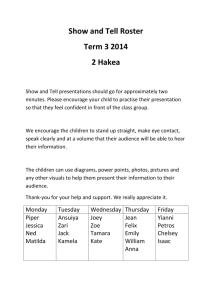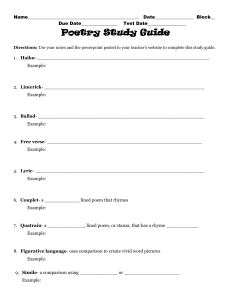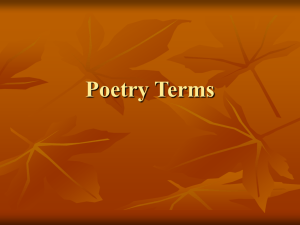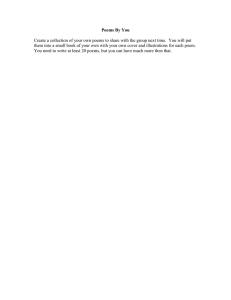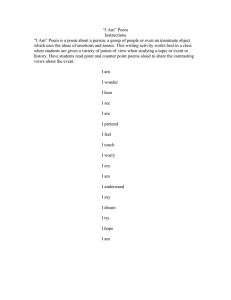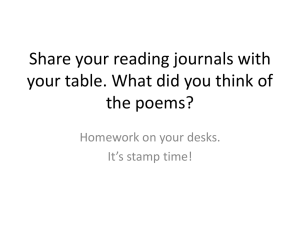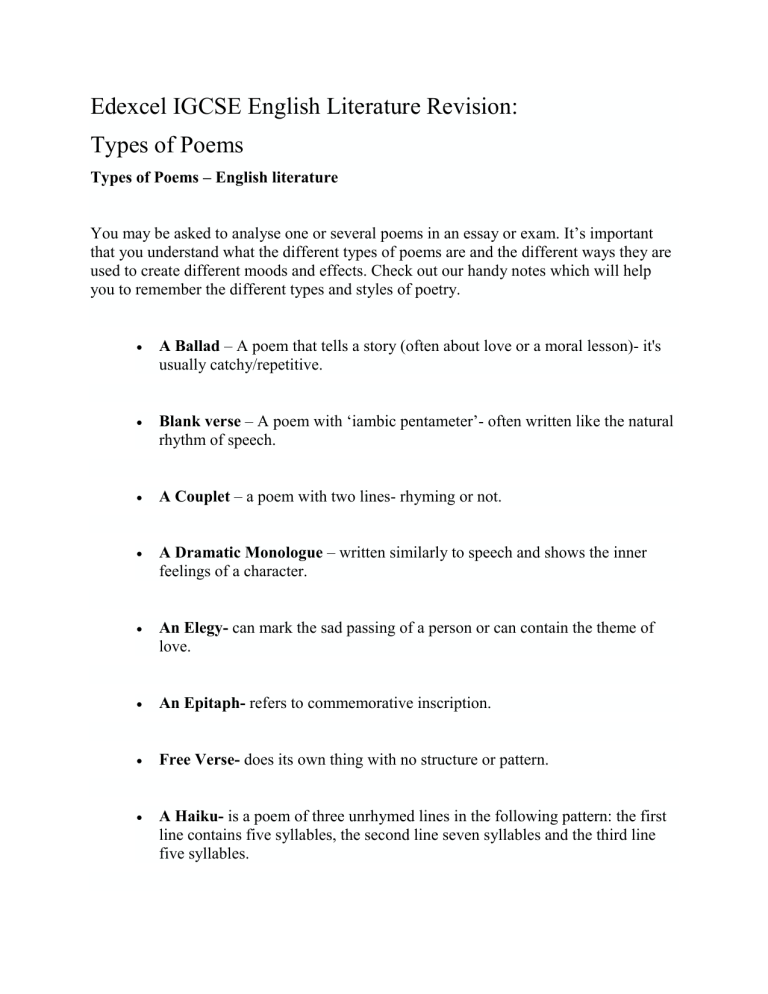
Edexcel IGCSE English Literature Revision: Types of Poems Types of Poems – English literature You may be asked to analyse one or several poems in an essay or exam. It’s important that you understand what the different types of poems are and the different ways they are used to create different moods and effects. Check out our handy notes which will help you to remember the different types and styles of poetry. A Ballad – A poem that tells a story (often about love or a moral lesson)- it's usually catchy/repetitive. Blank verse – A poem with ‘iambic pentameter’- often written like the natural rhythm of speech. A Couplet – a poem with two lines- rhyming or not. A Dramatic Monologue – written similarly to speech and shows the inner feelings of a character. An Elegy- can mark the sad passing of a person or can contain the theme of love. An Epitaph- refers to commemorative inscription. Free Verse- does its own thing with no structure or pattern. A Haiku- is a poem of three unrhymed lines in the following pattern: the first line contains five syllables, the second line seven syllables and the third line five syllables. A Limerick- is five-line humorous poem- light hearted and often nonsensical which has the following pattern: ;the 1st, 2nd and 5th lines must have 7 to 10 syllables; the 3rd and 4th lines have 5 to 7syllables. A lyric- expresses the thought and feelings of a person and it usually has a musical quality. Odes- were originally written to be sung and do not have to conform to a specific form. A Sonnet is a poem which always has 14 lines and each line is 10 syllables long and there are 2 different rhyming schemes.
